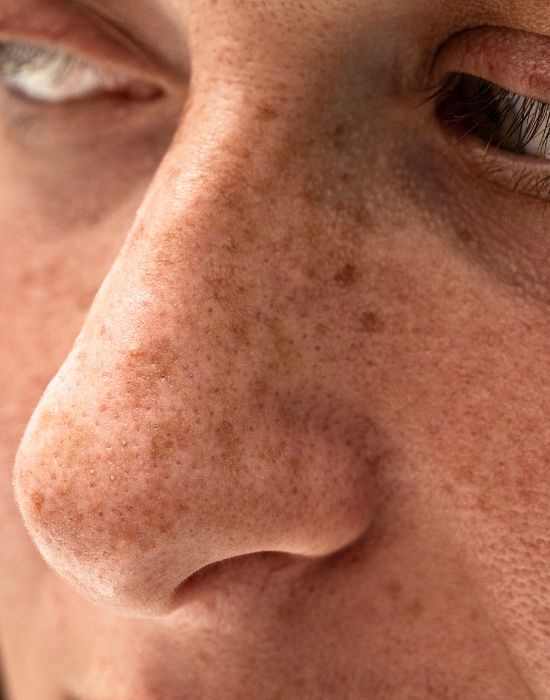Understanding Sun-Damaged Skin
Sun-damaged skin is the result of prolonged or intense sun exposure that harms the skin’s structure, leading to both cosmetic and medical concerns. Ultraviolet radiation from the sun’s rays, including both UVA and UVB rays, penetrates the outer layer of the skin, damaging skin cells and accelerating the aging process. Over time, chronic UV exposure can lead to more serious conditions, including actinic keratosis and skin cancer.
Potential Causes
- Unprotected sun exposure: Failing to wear broad-spectrum sunscreen with a high sun protection factor (SPF) exposes skin to harmful UV rays.
- Tanning beds and sun lamps: Artificial UV light can be just as damaging as natural sunlight, contributing to premature aging and skin cancer.
- Blistering sunburns: Severe burns increase the likelihood of long-term skin damage and developing most skin cancers.
- Environmental exposure: Even on cloudy days, UV rays penetrate the earth’s surface, affecting exposed skin.
Who is Affected by Sun Damage?
Anyone who spends time outdoors without proper sun protection can experience sun damage; people who work outside, enjoy outdoor recreation, or live in sunny climates are at a higher risk. Individuals with fair skin or a history of blistering sunburns are particularly vulnerable. Repeated UV exposure not only leads to dark patches, liver spots, spider veins, and uneven pigmentation, but it also increases the risk of squamous cell carcinoma and other skin cancers.
Services for Sun-Damaged Skin
Thrive Wellness and Aesthetics offers a variety of non-surgical options to help repair sun damage while restoring your skin’s texture, tone, and health:
Chemical Peels
These exfoliating treatments utilize alpha-hydroxy acids to remove the outermost layer of damaged skin to reduce uneven skin texture, fade brown pigment, and smooth deep wrinkles.
Photodynamic Therapy (PDT)
Using red fluorescent light and a topical photosensitizing agent, PDT can improve aging skin, reduce uneven pigmentation, and restore skin elasticity.
Cryotherapy
We can freeze noncancerous age spots and brown spots using liquid nitrogen, which helps eliminate abnormal skin cells and restore a more even skin tone.
Cosmetic Skincare
Customized products and regimens that include sun protection factor (SPF) products, antioxidants, and retinoids can help reduce further skin damage and support skin renewal.
Lumecca IPL
Uses powerful, intense, pulsed light (IPL) to heat the skin and destroy the cells that are creating pigmented spots, birthmarks, small blood vessels, and spider veins. It also stimulates collagen production to give you firmer and more youthful-looking skin.
Where to Get Started
If you’ve noticed signs of sun damage, such as dark brown patches, broken blood vessels, or uneven skin texture, Thrive Wellness and Aesthetics is here to help. We’ll guide you on proper sun protection, including the use of protective clothing, water-resistant sunscreen, and habits to shield sun-exposed areas. Don’t wait until sun damage becomes a serious concern; contact us to restore your skin’s health.
Frequently Asked Questions
Can you reverse sun damage?
What SPF should I use to prevent sun damage?
Are tanning beds safer than the sun?
Dana Protomastro, AGPCNP-BC, is a certified primary care nurse practitioner who is a proven leader in the medical community. She has over 25 years of experience delivering exceptional care with a holistic approach in perioperative care, plastic surgery, and aesthetic medicine.
Dana has introduced cutting-edge, non-invasive technologies into her practice as wellness-based alternatives to surgical procedures. She works closely with men and women of all ages to determine the best treatment method for their individual needs. Some of her specialties include laser treatments, micro needling, Botox, fillers and the integration of skincare products.





 Explore Our
Explore Our